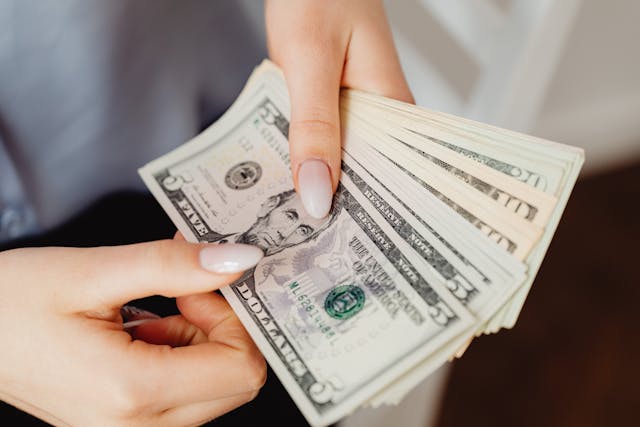Key Takeaways
Rental scams are on the rise, posing serious risks to landlords’ finances, reputations, and leasing processes, often going unnoticed until damage is done.
Common scams include overpayments, fake applications, hijacked listings, and unauthorized subletting, all of which can be prevented with vigilance and proper screening.
KRS Lynchburg helps landlords stay protected with expert tenant screening, secure payment systems, and lease management support to reduce fraud risk and safeguard investments.
While most tenants are trustworthy, rental scams remain a serious threat to landlords, impacting finances, reputation, and peace of mind. At KRS Lynchburg, we recognize how easily scammers can exploit gaps in the rental process, especially when risks are underestimated.
Understanding how these scams work and taking preventive steps is key to protecting your investment. In this article, we’ll cover common rental scams targeting landlords, warning signs to watch for, and how to reduce your exposure to fraud.
Get Your Free Rental Analysis Today
The Growing Threat of Rental Scams
While online rental platforms have streamlined property marketing, they have also opened the
door for new forms of fraud.
Each year, thousands of rental scam cases are reported, resulting in millions of dollars in losses.
Although property owners are frequent targets, most public attention remains focused on tenant-related fraud.
For landlords, a single scam can cause financial loss, delay leasing processes, and compromise sensitive information. Even more damaging, fraudulent activity involving a rental listing can deter legitimate tenants, harm a landlord’s reputation, and jeopardize relationships with rental platforms.
Common Rental Scams Targeting Landlords
Understanding how scammers operate is the first step in protecting your property. Below are several common tactics fraudsters use against landlords:
Overpayment Scams
In this classic scam, a fake tenant sends a rent or deposit payment exceeding the required amount, then requests a refund for the difference. When the original payment turns out to be counterfeit, the landlord has already returned the “excess” and suffers a financial loss.

Fake or Manipulated Payment Methods
Scammers may use counterfeit money orders, stolen credit cards, or forged cashier’s checks to make rent payments. These transactions initially appear legitimate but eventually bounce or get reversed, costing the landlord both time and money.
Identity Theft via Rental Applications
Some fraudsters pose as potential tenants to extract personal or financial information from landlords. They may claim to need these details for a background check, when in reality, they are collecting data for identity theft.
Unauthorized Subletting and Phantom Tenants
Certain tenants rent properties through legal channels but then sublet them at a higher rate to others without informing the landlord. This violates lease terms and exposes the property to potential damage or legal complications due to unauthorized occupants.
Hijacked Listings
Scammers often copy legitimate property listings and alter contact details to pose as the owner or agent. While tenants are the direct victims in these situations, the landlord's reputation can also suffer if renters associate the scam with their property.
Warning Signs of Potential Scams
To avoid falling victim, landlords must stay alert throughout the rental process. Below are key red flags that may signal fraudulent activity:
Suspicious Documents: Look out for incomplete applications, altered pay stubs, mismatched identification, or fake references.
Unusual Payment Behavior: Be cautious of tenants offering to pay in cash or transferring more than the required rent.
Inconsistent Communication: Frequent changes in contact details, use of generic email addresses, or avoidance of direct communication are warning signs.
Refusal to Provide Documentation: Genuine tenants should not resist background checks, employment verification, or references.
Sense of Urgency: Scammers often rush landlords to finalize agreements before inspections or proper vetting.

How Landlords Can Prevent Rental Scams
By taking preventive measures, landlords can significantly reduce the risk of fraud. The following strategies are essential:
Comprehensive Tenant Screening
Thorough screening is one of the most effective ways to detect fraud early. This process should include:
Criminal background checks compliant with local regulations.
Rental history verification with previous landlords.
Employment and income verification.
Credit checks to assess financial responsibility.
To improve accuracy and avoid falsified information, consider using professional tenant screening services that provide up-to-date reports.
Secure and Transparent Payment Methods
Establish clear, secure payment practices by:
Avoiding tenants who insist on paying exclusively in cash.
Accepting payments only through verified, traceable methods such as online platforms or bank transfers.
Being cautious of overpayments and only issuing refunds after confirming the original payment has cleared.
Always sending refunds to the same account from which payment was received.
Legally Binding Lease Agreements
Strong lease agreements help deter fraud and provide legal protection when needed. Every lease should clearly state:
Penalties for fraudulent behavior or non-payment.
A strict policy against unauthorized subletting.
Accepted payment methods, rent amounts, due dates, and applicable fees.
A well-drafted lease serves as both a legal safeguard and a deterrent for scammers.
Protecting Your Property Listings
Scammers often exploit online listings, but landlords can take steps to secure them:
Advertise only on trusted rental platforms with built-in fraud protection.
Use watermarks on listing photos and videos to prevent copying.
Regularly check for duplicated or suspicious versions of your listings.

Routine Property Inspections
Frequent property inspections can help identify unauthorized tenants, property misuse, or early signs of lease violations. Ensure all inspections comply with local laws and proper notice requirements.
Final Thoughts
Rental scams continue to evolve and pose real threats to landlords. Staying informed and adopting strong preventive practices is the best way to protect your property and business.
At KRS Lynchburg, we help property owners stay ahead of rental fraud by offering expert tenant screening, secure payment systems, and support with lease management.
By using the right tools and staying proactive, landlords can reduce risk, create trust with tenants, and build long-term profitability in a competitive rental market.







